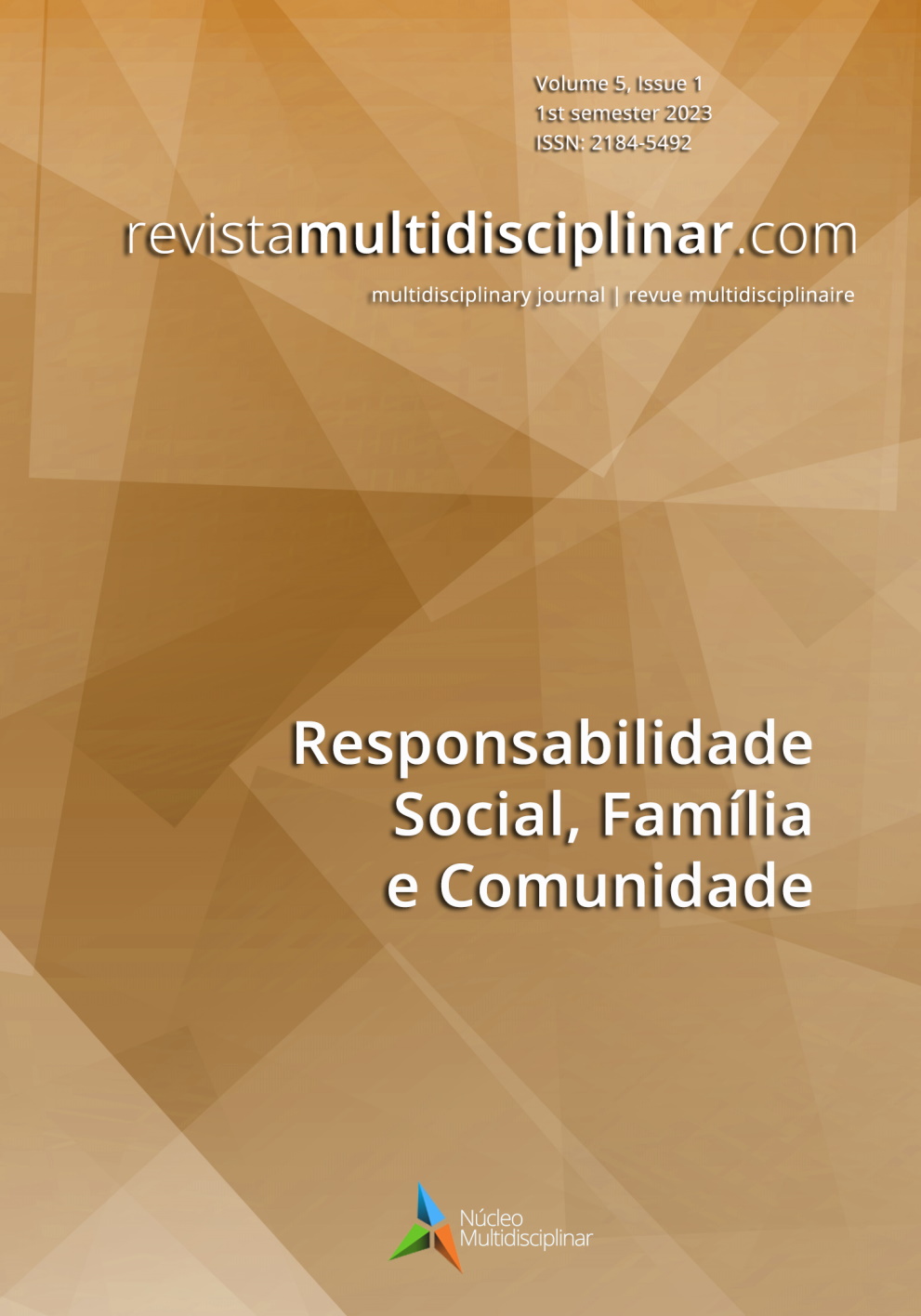Entrepreneurship in Basic Education as a motivating force
in the development of protagonism and other technical and behavioral skills
DOI:
https://doi.org/10.23882/rmd.23124Keywords:
entrepreneurship at school, behavioral competencies, Teia multiculturalAbstract
This article will present an explanation of entrepreneurship in school, taking into account the young people who will be trained in a process that seeks to generate in them a certain transformation, so that, by playing a leading role in society, they can also transform it. In other words, the proposal is that through the study of entrepreneurship at school, young people emerge as agents of transformation and protagonists of their own work journeys, taking the first steps towards building their careers. First, the nature of entrepreneurship itself, its importance in society, in the country as a whole, will be discussed. The role that entrepreneurship has in Brazil will be highlighted, where youth is seen as a social element not only for building a future, but in the just establishment of a present that contains its due challenges. Along with the attempt to define what an entrepreneur is, the qualities and competencies that a good entrepreneur possesses will be discussed. Therefore, the school will be able to develop in its pedagogy the means to make these characteristics emerge in young people, using entrepreneurship as a motivating source. We will discuss the transformation factor that entrepreneurial education generates in the student and, consequently, in the society in which he will act with critical sense and creativity, virtues that will be developed already as a teenager. Finally, we will mention the work that has been developed in the Teia Multicultural School, which will help us understand what is this protagonism that is so necessary for young people to be successful in their lives, in its various aspects.
References
Cezar, M. dos S. (2020). Saberes em relações dialógicas: “não há saber mais ou saber menos, há saberes diferentes”. Pesquisa E Debate Em Educação, 10(2), 1247–1258. https://doi.org/10.34019/2237-9444.2020.v10.31509
Conselho Nacional de Educação. (2018). Base Nacional Comum Curricular na Etapa do Ensino Médio (BNCC-EM), “RESOLUÇÃO Nº 4, DE 17 DE DE-ZEMBRO DE 2018”. Diário Oficial da União, Brasília, DF, 18 dez. 2018. Seção 1, p. 120. https://bit.ly/3HEG4PL
Corrêa, G. (2018) Teia Multicultural: A Construção de um Modelo Inovador na Escola Brasileira. [dissertação] Pontifícia Universidade Católica de São Pau-lo. https://repositorio.pucsp.br/jspui/handle/handle/21702
Dweck, C. (2017). Mindset: a nova psicologia do sucesso. Objetiva.
Farias, M. S. (2018). A educação empreendedora na escola: contextos, concepções e críticas. [Trabalho de Conclusão de Curso] João Pessoa: Universidade Federal da Paraíba. https://repositorio.ufpb.br/jspui/handle/123456789/11908
Freire, D. A. L. (2011). O Jovem e o Empreendedorismo no Brasil: oportunidade ou necessidade? Revista Gestão E Desenvolvimento, 8(1). https://doi.org/10.25112/rgd.v8i1.985
Gomes, D. C., de Farias Silva, L. A., D´Anjour, M. F., & Moreno Añez, M. E. (2014). Empreendedorismo Jovem: da Escola para o Mercado de Trabalho. HOLOS, 5, 333–343. https://doi.org/10.15628/holos.2014.2220
Lima Filho, D. O., Sproesser, R. L., & Martins, E. L. (2009) Empreendedorismo e Jovens Empreendedores. Revista de Ciências da Administração, 11(24). 246–277. https://doi.org/10.5007/2175-8077.2009v11n24p246
Luana de Souza, J., Lopes da Silva, A., da Silva Souza, G., & Lucia Monteiro Maciel Golin, A. (2021). Empreendedorismo Digital Infantil. Encontro Internacional De Gestão, Desenvolvimento E Inovação (EIGEDIN), 5(1). https://bit.ly/3Wgk8yu
Meneses, P. R. A. (2020). Propostas para a educação empreendedora em escolas públicas de ensino fundamental [Trabalho de Conclusão de Curso]. João Pessoa: Instituto Federal de Educação, Ciência e Tecnologia da Paraíba. https://repositorio.ifpb.edu.br/handle/177683/1078
Oliveira, L. A. M. (2020). Protagonismo juvenil na educação. [Trabalho de Con-clusão de Curso] Escola Nacional de Administração Pública (ENAP). https://repositorio.enap.gov.br/handle/1/5001
Pires, A. P. (2008). As possibilidades e limites da modalidade de concomitância externa da educação profissional na perspectiva da inclusão de jovens trabalhadores. [Dissertação de mestrado]. Centro Federal de Educação Tecnoló-gica de Minas Gerais. https://bit.ly/3YCDpvY
Rosa, A., Borges dos Santos, R. O., Souza das Neves, J. M., & Rosa, A. M. (2020). Empreendedorismo, Inovação e Criatividade: Uma Análise Bibliométrica. Preprint, ResearchGate GmbH. http://dx.doi.org/10.13140/RG.2.2.34686.41284
Santos Bispo, C., Jesus Souza, D., Araújo, F. P., Cardoso, N. H., Silva, P. S., & Santos Júnior, V. R. (2012). Empreendedorismo e Inovação. Instituto Baiano de Ensino Superior (IBES). https://bit.ly/3V3VArh
Schneider, M. C. (2020). Protagonismo empreendedor: Uma forma singular de ensinar. [Tese de doutoramento] Universidade do Vale do Taquari. https://www.univates.br/bdu/handle/10737/2931
Souza, S. A. A (2012). A introdução do empreendedorismo na educação brasileira: primeiras considerações. Educação & Linguagem, 15(26), 77–94. https://bit.ly/3HFwBYx
Published
How to Cite
Issue
Section
License
Copyright (c) 2022 Lucas Briquez

This work is licensed under a Creative Commons Attribution-NonCommercial 4.0 International License.









